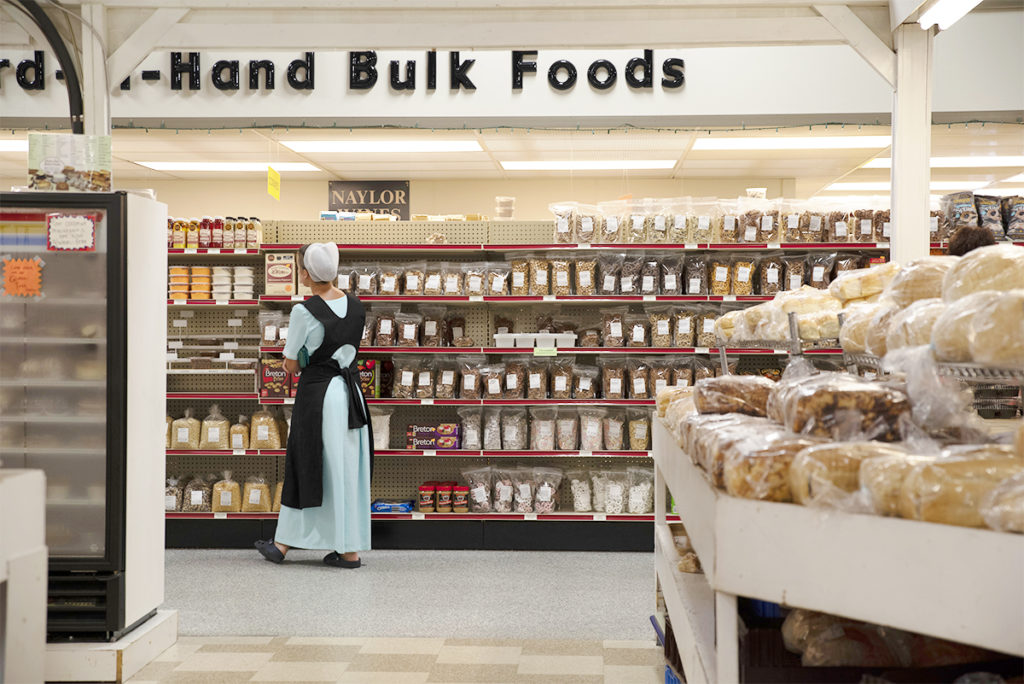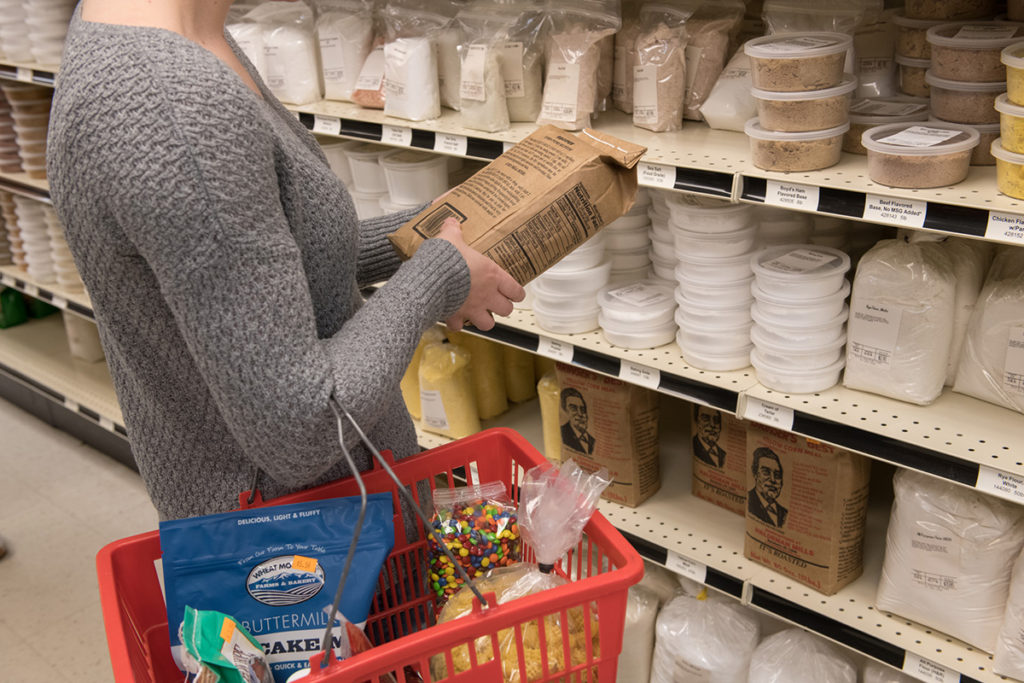You don’t need an expensive warehouse club membership to take advantage of buying in bulk. You don’t even need to roam every aisle of your grocery store. Bird-in-Hand Bulk Foods at The Markets at Shrewsbury has all of your bulk food needs in one place — everything from baking essentials and breakfast cereals to snack foods and pantry basics.

If you’ve been thinking about bulk buying, we’ll show you how buying in bulk saves money, outline other advantages you’ll see from bulk shopping, and run down the best foods to buy in bulk.
Is Buying in Bulk Really Cheaper?
The most important thing to look for when buying in bulk is the price-per-unit, whether that’s the price per pound, price per ounce, or price per piece. For example, you can purchase an 18-ounce box of name-brand cereal for $3.59. This breaks down to $0.20 per oz. In contrast, you can purchase a 48-ounce box of the same name-brand cereal for $5.99. This breaks down to $0.12 per oz.
Until you have a better grasp on buying in bulk, you should shop with a calculator (there’s one on your smartphone!). Use it to determine the price per unit of each item and confirm that your bulk purchase is really saving you money.
Another reason why buying in bulk is cheaper is that you’re often purchasing generic brand products. Name brands put a large number of advertising dollars toward building brand awareness for their products. On the other hand, generic brands pay almost nothing toward advertising and can sell their products at a lower price.
Are There Other Advantages of Bulk Purchasing?
In addition to the fact that buying in bulk saves money, there are other lifestyle benefits to bulk grocery shopping.
Less waste — Let’s say you need three pounds of pasta to whip up a big batch of your famous pasta salad. You could buy three one-pound boxes or you could buy a single three-pound bag of pasta. At first, there seems to be no difference, but now you have to throw away three cardboard boxes versus one bag. You start to see how buying in bulk can reduce the amount of food packaging waste you throw away.
Saves time — Buying in bulk can also be beneficial because it makes food shopping more efficient and, ultimately, saves you time. In this instance, buying in bulk is all about convenience and using your limited time for something other than repeat trips to the grocery store.

What Are the Best Foods to Buy in Bulk?
Beyond calculating the potential cost savings, you should also consider the following when choosing which foods to buy in bulk.
- Is this a food you eat or use frequently? The foods that you purchase and consume most often are your best bets when buying in bulk.
- Will you use the food quickly? Produce isn’t typically bought in bulk, but if you’re making a big batch of tomato sauce or guacamole, then saving money by purchasing bulk produce is a good option. You can also preserve produce for later use in a variety of ways like freezing, canning, or drying.
- Does this item have a longer shelf-life? Non-perishable foods are best, but you can also choose foods that are shelf-stable for long periods of time.
- Have you tried this food before? If you don’t already know that you and your family will love it, avoid buying it in large quantities.
- What are the best ways to store your food items to maintain freshness?
These are considered the best foods to purchase in bulk:
Cereal — This is a popular bulk food because many families eat it every day. After opening the package, store cereal in an air-tight container. This will keep it fresh for up to a month.
Beans and Pasta — These pantry essentials are perfect for whipping up a last-minute dinner and they have a long shelf-life. Stored in an airtight container, they will stay fresh for one to two years.
Rice — Rice is another quick and easy food that’s always good to have on hand. White rice can last up to a year, while brown rice lasts for about six months.
Flour and Baking Mixes — When stored in unopened packaging or airtight containers, these baking essentials can last up to a year.
Condiments — Larger bottles of ketchup and mustard will stay fresh for six months to a year when stored per the directions on their labels.
Nuts — Because nuts have a high-fat content, they can go bad quickly. When buying nuts in bulk, make sure you’ll use them right away.
Spices — Spices start losing their potency in about six months, so buying in bulk is best for the spices you use all the time. If you need a more obscure spice, stick with a smaller container.



